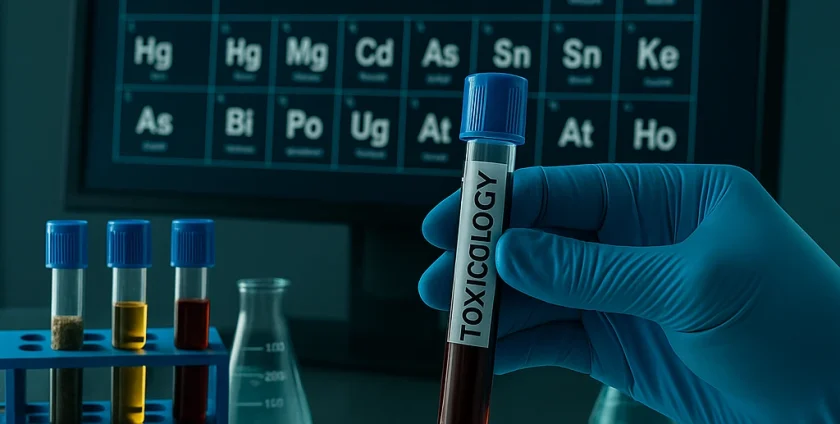
Modern lifestyles often expose us to toxic substances such as heavy metals (lead, mercury, cadmium), environmental chemicals, and pesticides found in food. Toxicological blood tests, which measure the levels of these harmful elements in the blood, allow for early detection of potentially dangerous concentrations, helping to prevent long-term health complications. Accurate blood test interpretation of toxicological parameters is essential for identifying risks and taking preventive measures.
Heavy metals can cause significant health issues. For example, lead negatively affects the nervous and hematopoietic systems, especially in children, leading to problems with concentration and intellectual development. Mercury accumulates in the body and can damage the kidneys and brain. Cadmium, found in cigarette smoke and contaminated food, disrupts kidney and bone function and increases the risk of cancer. Understanding these blood test results is critical for addressing such risks early.
Toxicological blood tests are particularly important for individuals working in heavy industry, agriculture, or chemical laboratories, where exposure to harmful substances is common. These tests can detect subclinical signs of poisoning and help prevent further exposure. Monitoring is also crucial for sensitive groups, such as pregnant women, as prenatal exposure to heavy metals can have long-term consequences on a child’s health.
Blood test results for toxic elements should always be interpreted in the context of environmental exposure. Even small amounts of toxins can be dangerous if exposure is prolonged. Symptoms of heavy metal poisoning are often nonspecific, such as skin changes, fatigue, or joint pain, making laboratory tests essential for accurate diagnosis.
On old.itsmybloodtest.com, you can find guidance on preparing for toxicological tests and taking necessary precautions if blood test results indicate elevated levels of toxic substances. When toxins are detected, treatments like chelation therapy or other detoxification methods may be required, alongside dietary and lifestyle changes to reduce further exposure.
Regular toxicological blood tests are vital for preventing serious health complications. Identifying the source of exposure and taking prompt action to limit contact with toxins are essential steps in protecting the body from lasting damage. By understanding your blood test results, you can take proactive measures to safeguard your health and well-being.